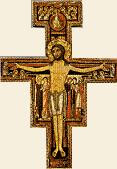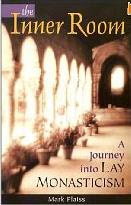
Lectio Divina has been likened to ‘Feasting on the Word.’ The four parts are first taking a bite (Lectio), then chewing on it (Meditatio). Next is the opportunity to savor the essence of it (Oratio). Finally, the Word is digested and made a part of the body (Contemplatio).
Lectio
Lectio is where we read or listen the Word of God, slowly and reflectively so that it sinks into us. This consists in reading the scriptural passage slowly, attentively several times. It is important to cultivate the ability to listen deeply ‘with the ear of our hearts’. We read the Scriptures as the prophet Elijah did, allowing ourselves to listen for the still, soft, small voice of God; the ‘faint murmuring sound’ of God's voice touching our hearts.
Reading or listening to the Word is not like reading or listening to periodicals or pocketbooks. Lectio is reverential listening in a spirit of silence and of awe. We are listening for the still, small voice of God that will speak to us personally – not loudly, but intimately. We read slowly, attentively, gently listening to hear a word or phrase that is God's word for us this day.
Any passage of Scripture can be used for this way of prayer but the passage should not be too long. Many write down words in the scripture that stick out to them or grasp their attention during this moment.
Meditatio
The second stage is meditatio where we think about the text we have chosen and meditate upon it so that we take from it what God wants to give us.
Once we have found a word or a passage in the Scriptures that speaks to us in a personal way, we must take it in and meditate on it. The invitation to meditate on the Word is similar to the manner the Virgin Mary pondered in her heart what she saw and heard of Christ (Luke 2:19). For us today these images are a reminder that we must take in the word - that is, memorize it - and while gently repeating it to ourselves, allow it to interact with our thoughts, our hopes, our memories, our desires. We allow God's word to become His word for us, a word that touches us and affects us at our deepest levels.
Oratio
This stage is a response to the passage by opening the heart to God. It is not an intellectual exercise, but an intuitive conversation or dialogue with God, where we leave our thinking aside and simply let our hearts speak to God in prayer.
Prayer is dialogue with God, a conversation with the One who has first invited us into His embrace. It is an act of consecration of ourselves that we have not previously believed God wants. In prayer we allow the word to touch and change our deepest selves. God invites us to offer our most difficult and painful experiences to Him, and to gently recite over them the word He has given us in our lectio and meditatio. In this oratio, we allow our real selves to be touched and changed by the word of God.
Contemplatio
The last stage of Lectio Divina is contemplation, when we finally rest in the presence of the One who has used His word as a means of inviting us to accept His transforming embrace. We let go not only of our own ideas, plans and meditations but also of our holy words and thoughts. Wordless and quiet, we begin to listen at the deepest level of our being to God who speaks within us with a still small voice. As we listen, we are gradually transformed from within. Once again we practice silence, letting go of our own words; this time simply enjoying the experience of being in the presence of God.
Operatio – the application
Sharing our Lectio Experience with Each Other (Operatio - Action; works)
Obviously this transformation will have a profound effect on the way we actually live and the way we live is the test of the authenticity of our prayer. We must take what we read in the Word of God into our daily lives.
As a contemplative practice, Lectio Divina is practiced to enable the practitioner to creatively engage with scripture on various levels depending on one's educational background and spiritual strengths. The expected outcome will be a deeper knowledge of scripture, oneself, others and God, and to see all these in gradually increasing light of faith. to be continued...






No comments:
Post a Comment